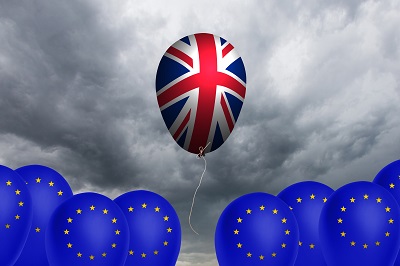James Hamilton provided one of my all-time favorite quotations:
You could argue that if the Fed is doing its job properly, any recession should have been impossible to predict ahead of time.
In many cases, the disasters that strike us are unexpected. The 1973 oil embargo. The 9/11 attacks. The Lehman moment.
Many of the disasters that are anticipated, somehow fail to arrive. I recall a feeling in 2015 that China was sliding into recession. I recall that many experts expected the Syriza government to take Greece out of the euro (dubbed “Grexit”)–thereby triggering a loss of confidence in other Mediterranean countries. Often (but not always) these expected crises don’t materialize.
So what is the prospect for a hard Brexit? On one level, it’s hard to see how this outcome can be avoided. The votes for Theresa May’s soft Brexit option are simply not there. Indeed she just suffered the worst defeat by a sitting government in UK parliamentary history, by a margin of 230 votes. So what will happen?
I am just as in the dark as everyone else. But I suspect that in one way or another the UK will avoid a hard Brexit. Big institutions find it very difficult to knowingly walk into a disaster. (Put aside your personal view as to whether a hard Brexit would actually be a disaster, which is debatable. The point is that a majority of UK officials see it that way.)
Here’s yesterday’s Financial Times:
Theresa May has hinted that she could delay the date Britain leaves the EU, as the UK prime minister seeks to devise a new Brexit plan following the historic parliamentary defeat of her original deal last night.
Ministers have been split on whether to back an extension to the so-called Article 50 negotiation period, a prospect that would dramatically reduce the likelihood of a no-deal Brexit but would infuriate Conservative Eurosceptics.
When I see a politician go from “no” to “maybe”, I think back to when I was eight years old. When we asked for Dairy Queen ice cream and our parents told us “maybe”, my siblings and I would chant in unison “maybe means yes”.
I still see enormous uncertainty here, as there is no clear path toward any of the possible outcomes. So “disaster” could still strike. But as of today I lean toward “no hard Brexit”. That means either no Brexit at all, or a soft option like the Norway arrangement. The latter option might be better, as it is dangerous to totally ignore the voters.


READER COMMENTS
IVV
Jan 17 2019 at 10:50am
When I hear about Jeremy Corbyn demanding that hard Brexit be taken off the table, I just think that’s not really Parliament’s choice now, is it?
The EU has no incentive to come to any deal on Brexit, so there is no reason to negotiate. The UK can stay, or the UK can leave, but the UK leaving with special terms and conditions won’t help the EU at all, economically or politically, so any soft Brexit deal can’t possibly be forthcoming.
Honestly, at this point, the EU kicking the UK out suddenly would likely be the thing everyone needs to finally scramble and figure out what needs to happen.
Thaomas
Jan 19 2019 at 4:31pm
May just has to present one softer Brexit after another, threatening just to withdraw the Article 50 negotiation notification altogether if nothing is agreed to, to until Parliament agrees to one of the plans. Hopefully she will be forced to withdraw the notification.
Cliff
Jan 17 2019 at 1:02pm
Surely it would help them economically?
Scott Sumner
Jan 17 2019 at 1:13pm
IVV, The EU would definitely prefer a soft Brexit to a hard Brexit.
Warren Platts
Jan 18 2019 at 6:16pm
The hard Brexit was Dunkirk. This is nothing.
Todd Kreider
Jan 17 2019 at 2:22pm
The 1973 oil “embargo” wasn’t a disaster. The U.S. government response to it was.
ChrisA
Jan 18 2019 at 12:21am
It is an interesting problem. All business negotiations I have been involved in only get solved when time has almost run out on some external arbitrary deadline, when all the negotiators know that they will be punished more for failing to agree than not agreeing. Many negotiators face very bad incentives if they compromise before the deadline – they don’t get praised for finding the compromise that get criticized for giving in. This is much worse for politicians – can you imagine a politician representing people with strong views against Brexit for instance agreeing to some kind of Brexit deal ahead of time trying to explain why they compromised when they didn’t have to?
So this will go to the wire. But the other thing I always say about negotiations is that the difficulty goes up to the power of the number of independent parties involved. So getting four people to agree is 16 times more difficult than 2 people agreeing. And the number of parties to align on a Brexit deal is astronomical. So I imagine the main thing that will be agreed at the deadline is an extension of the current arrangements for another 2 years or something. Which will probably be extended again and again.
Seth Green
Jan 18 2019 at 3:42am
This bodes well for Bryan’s brexit bet https://stageeconlib.wpengine.com/archives/2016/06/pre-brexit_bet.html
Lorenzo from Oz
Jan 19 2019 at 5:36pm
Yanis Varoufakis explains why one cannot negotiate with the EU. Norway, hard Brexit or no Brexit seem the only options.
https://www.youtube.com/watch?v=SY3wj4gmv5s&t=591s
The EU has screwed up its interactions with all three periphery European powers — Russia, Turkey, UK. A three, it looks like a pattern.
Comments are closed.